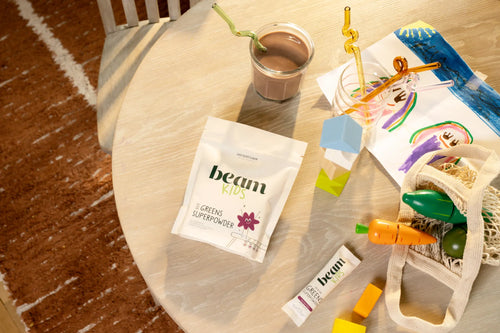Signs Your Gut Is Healing: How to Know You’re Making Progress
Feeling better after digestive issues can feel like a huge relief — but how do you know if your gut is truly healing? The gut is complex, tied to digestion, mood, skin, and even immunity. Recognizing the signs your gut is healing can keep you motivated and help you track progress.
Gut healing doesn’t happen overnight. It’s a gradual process of repairing the gut lining, balancing healthy gut bacteria, and supporting the digestive system through daily habits. With the right approach, you’ll notice subtle yet powerful changes in your digestive health and overall well-being.
Understanding Gut Health and the Healing Process
Your gut is like a bustling city with trillions of microorganisms working together. When this ecosystem gets disrupted, it affects your whole body. The healing process involves restoring balance to your gut microbiome and repairing any damage to your intestinal lining.
Think of your digestive system as a garden. Plants need the right soil to thrive; your gut bacteria need the right environment. Poor gut health can stem from many factors, including stress, ultra-processed foods, certain medications, alcohol, and lack of sleep. When you start addressing these, your body begins its natural repair process.
The gut lining acts as a protective barrier, controlling what enters your bloodstream. When this barrier is compromised, it can lead to digestive issues and systemic inflammation. Healing involves strengthening this barrier, calming gut inflammation, and improving nutrient absorption.
Why Gut Healing Matters
Your gut is more than a food-processing tube — it’s an ecosystem. Inside your digestive tract live trillions of microbes, collectively known as the gut microbiome. These microbes break down food, help you absorb nutrients, regulate your immune response, and even influence your mental health through the gut-brain connection.
When your gut is out of balance — whether from processed foods, antibiotics, chronic stress, or conditions like inflammatory bowel disease or celiac disease — you may experience digestive issues, fatigue, or even skin problems. An unhealthy gut can affect everything from your energy to your mood.
A healthy gut matters because your gut impacts overall health in three critical ways:
- Digestive efficiency: A healed gut breaks down food more effectively and maximizes nutrient absorption.
- Immune protection: Up to 70% of the immune system is housed in the gut. A strong gut means stronger defense.
- Mind-body wellness: A balanced microbiome supports mental stability and reduces stress-related flare-ups.
That’s why healing your gut isn’t just about reducing digestive symptoms — it’s about supporting your whole body.
Top Signs Your Gut is Healing
Your body speaks in patterns. As balance returns, everyday digestive symptoms start to settle first. You will notice steadier bowel movements, less excess gas, fewer cramps, and a calmer abdomen after meals. Energy, skin, and mood often follow as the microbiome shifts toward more beneficial bacteria.
-
Regular Bowel Movements and Less Digestive Discomfort
One of the clearest indicators that your gut is on the mend is normalized bathroom habits. Healthy bowel movements typically occur one to three times per day, are formed, easy to pass, and happen without urgency or strain. You’ll also notice less cramping, gurgling, and post-meal heaviness. Tracking changes in frequency, ease, and form is a simple way to monitor progress.
-
Reduced Bloating and Excess Gas
That uncomfortable balloon feeling often improves first. As beneficial bacteria repopulate, excessive fermentation and gas production drop. Clothes fit more comfortably, your midsection feels less tight, and mealtimes feel calmer.
-
Less Abdominal Pain and Cramping
When the intestinal lining repairs and inflammation calms, pain episodes become less frequent and intense. You may tolerate a wider range of foods without fear of payback later. Better sleep often follows when nighttime discomfort fades.
-
More Energy and Fewer Fatigue Spells
A settled gut absorbs nutrients more effectively. B vitamins, iron, and other essential nutrients reach your cells, which helps steady your energy throughout the day. Expect fewer crashes, a reduced need for quick sugar fixes, and a lighter feeling after meals.
-
Improved Mood and Mental Clarity
The gut and brain communicate through neural, immune, and chemical pathways. As the gut stabilizes, people often report clearer thinking, steadier mood, and better stress resilience. Better sleep, accompanied by fewer GI symptoms, helps too.
-
Reduced Food Sensitivities and Calmer Reactions
As barrier function improves, your immune system is less likely to overreact to certain foods. You may tolerate items that used to bother you. Reintroduce cautiously, one at a time, and stay mindful—resilience increases, but an anti-inflammatory baseline still matters.
-
Clearer Skin and Fewer Skin Issues
Gut and skin are linked through immune and inflammatory pathways. When the gut is calm, many people experience fewer breakouts and less redness. Better absorption of skin-supportive nutrients (vitamins A, E, C, zinc, omega-3s) also helps.
Long-Term Markers of a Healthy Gut
Healing is a journey. Beyond the early improvements, look for these steady, long-term signs.
Better Tolerance to Foods
Where once certain foods caused bloating or discomfort, now you may notice less reactivity. This means your intestinal lining is stronger and your gut microbes are breaking down foods more effectively. Over time, an elimination diet may help reintroduce foods without triggering old symptoms.
Balanced Weight and Reduced Cravings
With healthy gut bacteria supporting metabolism, your appetite balances out. Cravings for too much sugar or ultra-processed foods may decrease, while satisfaction from whole foods increases. This isn’t about dieting — it’s your body naturally shifting toward what it needs.
Stable Hormones and Menstrual Health
For women, better gut function can support hormone regulation, which influences menstrual cycles, mood, and even skin health. That’s because the gut helps metabolize estrogen and regulate hormonal balance.
Consistency Over Time
The best sign of healing? Progress that lasts. When you’ve experienced months of steady improvements in digestive health, energy, and mood, you’re well on your way to a healthy gut. Long-term stability is what differentiates short-term fixes from true healing.
How to Support Your Gut Healing Journey
Healing requires both patience and consistency. The right habits can reinforce progress and prevent setbacks.
Balanced Diet Rich in Plant-Based and Fermented Foods
Eating plant-based foods, lean proteins, and fermented foods like sauerkraut, kimchi, or kefir introduces healthy bacteria that support a balanced microbiome. These foods provide fuel for beneficial bacteria while discouraging the growth of harmful bacteria.
At the same time, reducing processed foods, artificial sweeteners, and inflammatory foods can protect your gut lining. If you’re healing from leaky gut, focus on gentle, nutrient-dense meals.
Managing Stress and Getting Enough Sleep
Chronic stress and sleep disturbances can harm the gut. Elevated stress levels release cortisol, which can disrupt digestion and weaken the intestinal lining. Prioritize managing stress with practices like yoga, breathwork, or meditation, and aim for enough sleep to allow your gut to repair itself overnight.
Exercising Regularly
When you exercise regularly, you boost blood flow, which supports gut repair and encourages microbial diversity. Even light activities, such as walking, improve digestion and help regulate bowel movements.
Supplements to Improve Gut Health
Sometimes diet alone isn’t enough. Probiotics, prebiotics, and postbiotics can restore balance in the gut. Beam Biotic is a daily tribiotic powder designed to simplify gut care by combining prebiotics, probiotics, and postbiotics in one refreshing blend. It’s an easy way to support digestion, immunity, and bloat relief as your gut heals.
When to Seek Professional Help
Not every gut issue resolves with lifestyle changes. Sometimes, medical support is necessary.
- Persistent or Severe Digestive Issues: Constant abdominal pain, upset stomach, or worsening digestive symptoms may indicate gastrointestinal disorders.
- Food Allergies or Intolerances: If you suspect a food intolerance or allergy, a blood test or a guided elimination diet supervised by a doctor can help.
- Medical Conditions: Irritable bowel syndrome, inflammatory bowel diseases, and liver disease need professional care. Work with a gastroenterologist if you suspect a chronic condition.
Celebrate the Signs Your Gut Is Healing
Healing your gut is a journey of small, steady wins. From better bowel movements to clearer skin and improved mood, the signs of progress may appear gradually — but they add up to a transformed sense of well-being.
Remember: everyone’s gut heals at its own pace, and various factors, such as diet, stress, and sleep, play a role. By supporting your gut with a balanced diet, lifestyle changes, and simple supplements, you give your digestive system the chance to thrive.
Celebrate your wins, listen to your body, and keep nourishing your gut. It’s the foundation of a healthier, more energized you.
FAQs About Gut Healing
How long does it take for your gut to heal?
Healing varies by person. Minor digestive issues may improve in weeks, while conditions like leaky gut syndrome or inflammatory bowel disease may take months with consistent care.
What foods help your gut heal fastest?
Fiber-rich plant-based foods, fermented foods, and lean proteins are top choices for a healthy diet. Avoid processed foods and artificial sweeteners that can harm beneficial bacteria.
Do gut supplements really work?
Yes, many studies (including research from Johns Hopkins Medicine) show that probiotics and prebiotics support a healthy microbiome. For optimal results, select supplements that are third-party tested and formulated to support diverse strains of healthy gut bacteria.
Can stress slow down gut healing?
Absolutely. High stress levels affect the gut-brain connection and may trigger digestive diseases or flare-ups in conditions like IBS. Managing stress is as important as diet.




